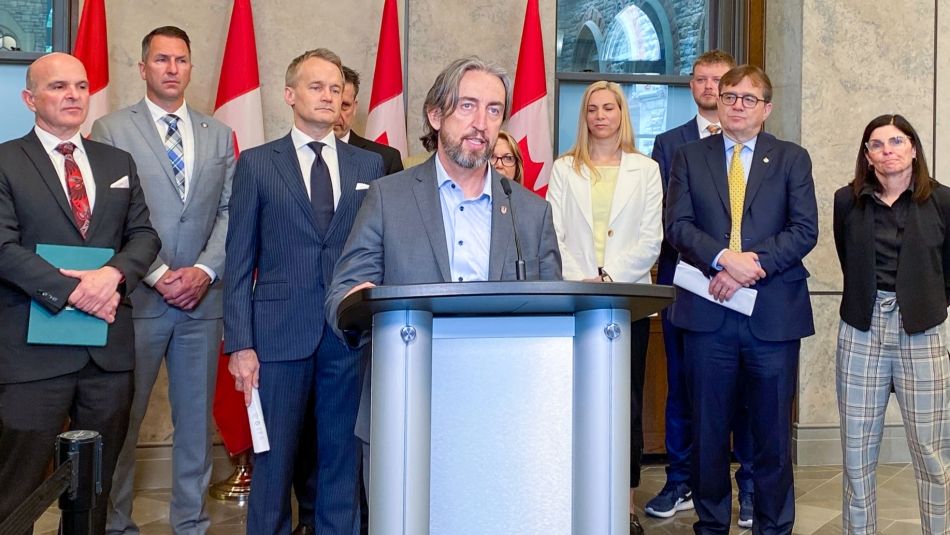
Share
Unifor Western Regional Director Gavin McGarrigle joined Minister of Natural Resources Jonathan Wilkinson, NDP Member of Parliament Daniel Blaikie and other representatives to help announce the tabling of Bill C-50, The Sustainable Jobs Act.
“The proposed Sustainable Jobs Act is the latest milestone in ongoing efforts to protect workers as the economy transitions to net-zero,” said Lana Payne, Unifor National President. “Unifor is ready to provide the federal government with the guidance necessary to ensure this legislation works for workers.”
Unifor has long campaigned to increase direct worker involvement in just transition policymaking. C-50 establishes a Sustainable Jobs Partnership Council for an ongoing “social dialogue” process. Unifor will be pressing government to maximize workers’ voice at that table, including a council seat for Unifor.
“If workers aren’t at the table, they’re on the menu,” said McGarrigle. “When workers participate in the policy-making process, we can ensure that our families' and our communities' interests are valued.”
The new legislation also creates a Sustainable Jobs Secretariat to facilitate coordination across government ministries. As new programs and processes are established in multiple areas of government, effectively delivering these programs to workers will require central oversight.
In the coming weeks and months, the legislation will be reviewed by the House of Commons and eventually adopted into law. It will use the Partnership Council to create a 2025 Sustainable Jobs Action Plan (SJAP).
Unifor says that plan should address key gaps not addressed in today’s legislation, including the need for funding commitments to address transitions for existing jobs.
“In many regions, workers have legitimate anxiety about the future of their jobs and their industry. The SJAP must make funding available to regionally customize support for workers in at-risk industries including income supports, training, skills development, labour market mapping, and mental health supports,” said Sari Sairanen, Executive Assistant to the Unifor National Secretary-Treasurer and Unifor’s appointee to the Blue-Green Alliance.
“It is not hypothetical: the transition is already underway. The need for funding supports is urgent,” she said.
Unifor also sees a gap in the legislation for concrete processes to preserve unionized jobs during the economy’s decarbonization.
While the legislation discusses good jobs, Unifor will need to fight for an Action Plan that articulates how goals will translate into results.
“CEOs will always be lobbying for laws and regulations that benefit them: precarious, part-time jobs with minimal workplace rights and no unions. That’s not the sustainable economy Canadians want, and they deserve a plan to avoid the slide towards low wage, temporary jobs,” said Payne. “The economy is at a turning point. Unifor will fight for a green future that is founded on good, union jobs.”


